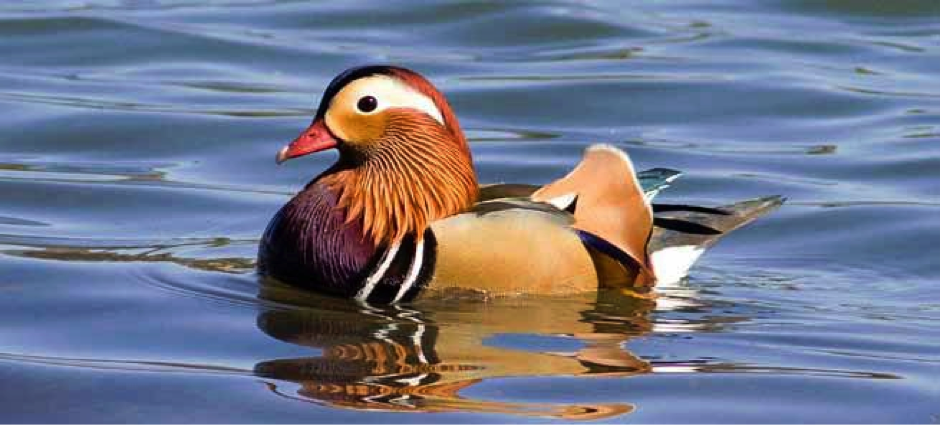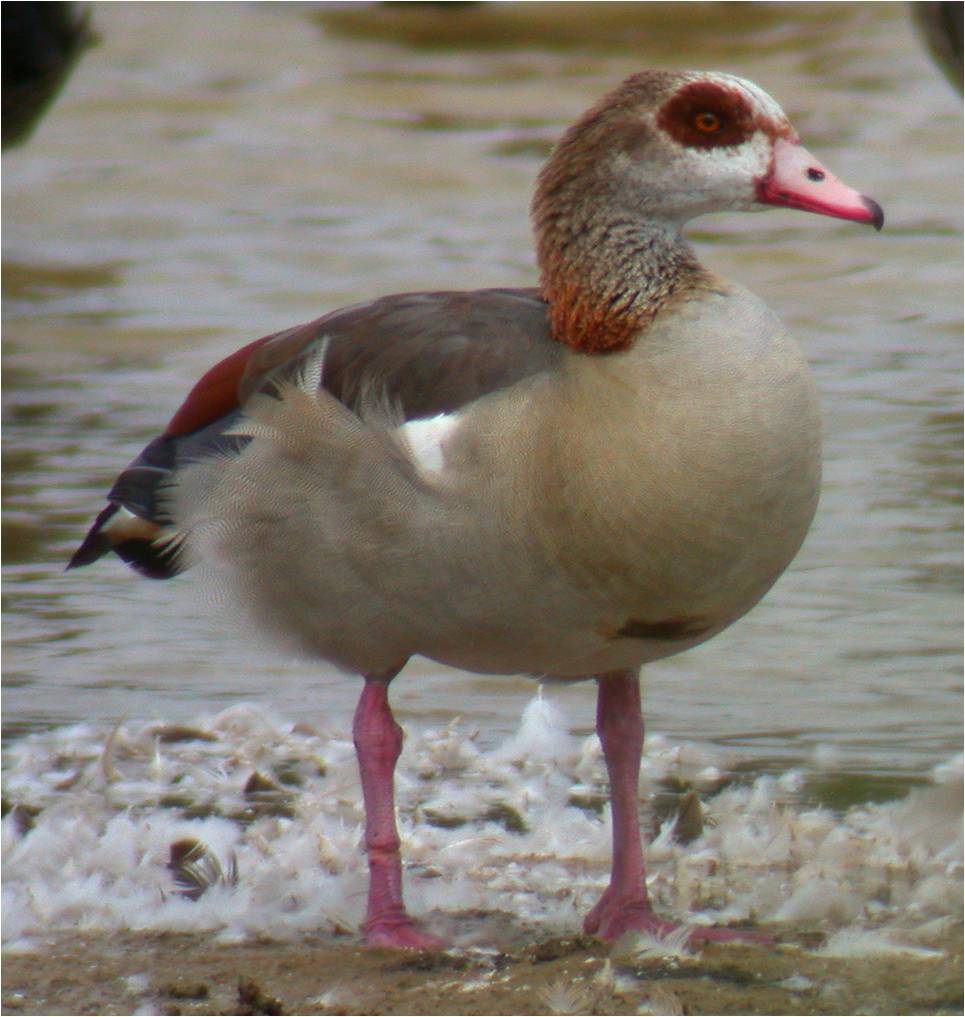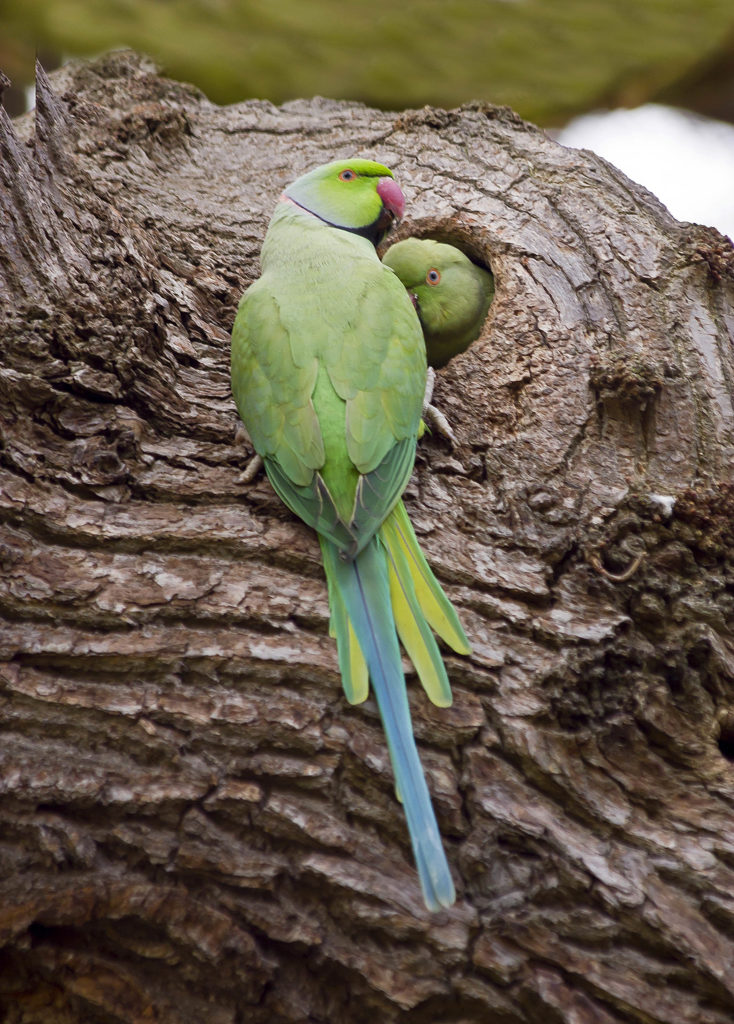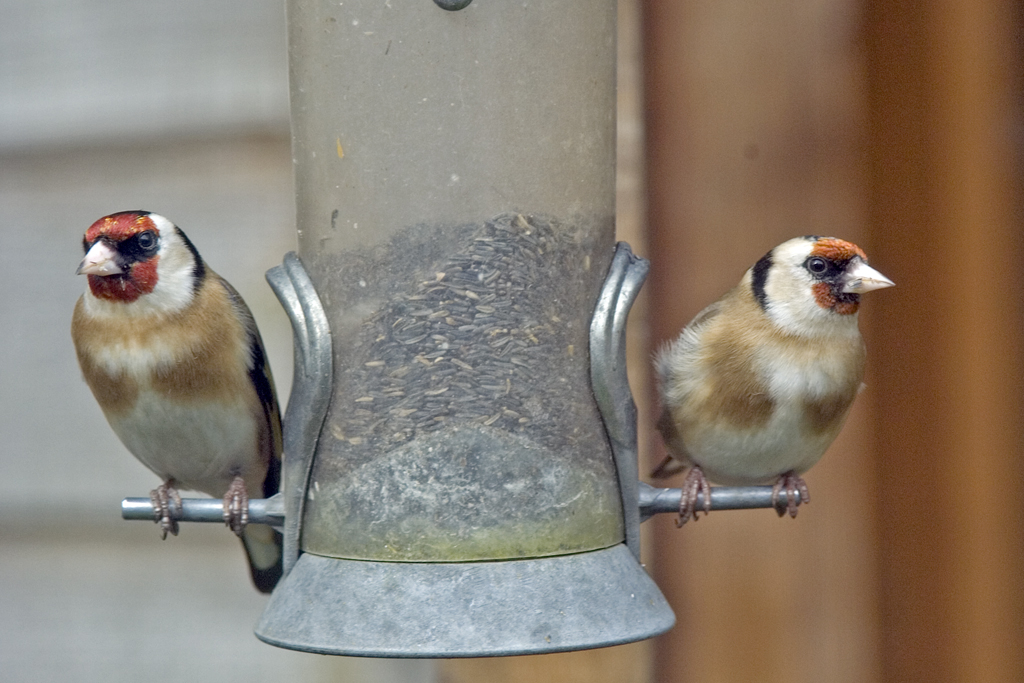Mandarin Ducks and Egyptian Geese
This month we highlight two striking bird species that are seen from time to time on the river around Eton. Both have been introduced to this country from abroad. These species have become adapted to the local environment, and are described as naturalised species.
The shy and secretive Mandarin Duck, originally from eastern Asia, is an introduced species that has progressively established itself in the eastern half of Berkshire. The colourful drake has two distinctive orange ‘sails’ at the back. The first Mandarin release in the UK was early in the eighteenth century, but most of the birds we see locally are descended from a release of five pairs on to an estate near Cobham in Surrey in 1928. These birds bred successfully and then spread north, east and west. Best suited to mature, open broad-leaved woodland with secluded ponds and streams for shelter, it was therefore no surprise that its first toehold in East Berkshire was in the Great Park as early as 1932. In fact, a major population in the UK is still centred on Virginia Water and the total national population is estimated at 7,000. Its breeding range has expanded in recent years to cover most of the Thames Valley and around Eton we occasionally see it around Cutler’s Ait and Romney Island, just upstream of the College. This perching duck nests in trees, and seems to prefer Oak, Sweet Chestnut and Beech. It is also capable of travelling long distances: a bird ringed in Berkshire was recovered in north-east Russia!
Another local feral population is that of the Egyptian Goose. In our recent floods, residents reported them exploring South Meadow, though in normal river conditions they are more usually seen downstream of Windsor Bridge. The Egyptian Goose is now found throughout the Eastern half of Berkshire. Counts of nearly 200 are not unknown locally (near Cookham) and the Berkshire Bird Atlas describes the Egyptian Goose as ‘one of the most successful birds in Berkshire since the 1980s’. Originally from sub-Saharan Africa, it then spread to the Danube in Hungary and Romania. The first introductions in Britain were in the late 17th century in the collection of Charles II in St James’s Park in London. An estimated national population of 400 in 1988 has now risen to nearly 3,400 according to the RSPB.
The photos have been kindly provided by Brian Clews (Egyptian Goose) and Roger Milligan (Mandarin) of the Berkshire Bird Atlas Group
George Fussey (Curator)





